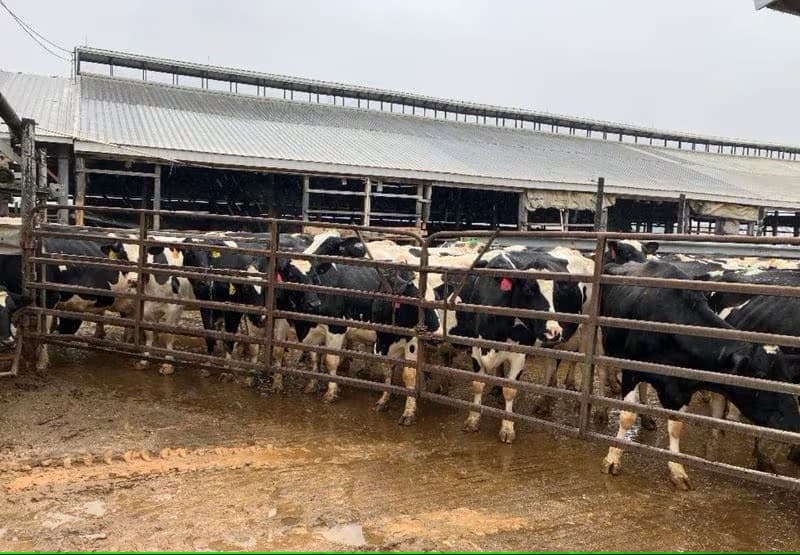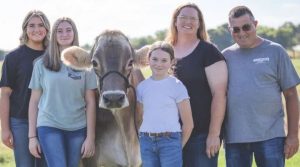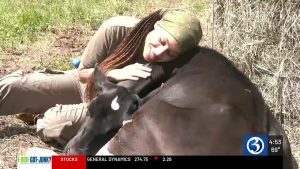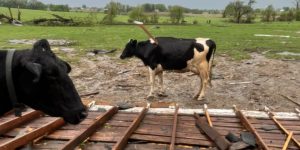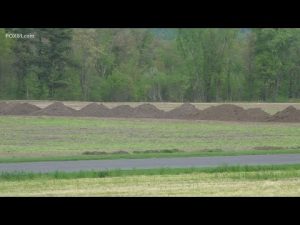
The Michigan attorney general’s office is suing an Allegan County dairy farm after escalating scrutiny from environmental regulators found high levels of harmful pathogens in runoff that drains to the Kalamazoo River.
In late February, Attorney General Dana Nessel sued Deborah Brenner of J&D Brenner Farms in Hopkins, alleging the farm on 132nd Avenue is overloading waterways with nutrients and pathogens through improper animal waste management.
The farm raises about 650 cows on 8 acres in the style of a concentrated animal feeding operation (CAFO) but does not have a permit required of such facilities, the state says.
The case was filed Feb. 27 in Ingham County Circuit Court on behalf of the Michigan Department of Environment, Great Lakes and Energy (EGLE). The state claims the Brenner farm is violating state water quality laws and causing a public nuisance.
“Protecting our state’s waterways and watersheds is a priority for my department,” said Nessel, in a statement. “When businesses fail to adhere to Michigan’s water quality standards, my office will hold them accountable.”
Brenner’s attorney did not reply to a message Wednesday.
According to the state’s lawsuit, regulators told Brenner in 2016 that the farm housed and fed too many cows to operate without a pollution discharge permit.
State inspectors visited the farm in April 2017 and October 2019, and issued a violation notice after observing “unlawful discharge of production area waste” into drains that flow to the Rabbit River, which meets the Kalamazoo River near New Richmond.
There are two waste storage lagoons on the farm, but the state says Brenner has not provided documentation on their design and their storage capacity is unknown.

A waste lagoon at J&D Brenner Farms in Hopkins, Mich., during a Jan. 5, 2023 inspection by Michigan EGLE. The state is suing the farm over its waste management.Michigan EGLE
In January 2023, state testing found extremely high levels of biological oxygen demand in a drain outfall. Such demand, known as BOD, is the measure of oxygen needed to completely break down a waste product. High rates can reduce water quality.
Testing also found “extreme readings” of chlorides, suspended solids, turbidity, ammonia, nitrates, phosphorus, calcium, copper, magnesium, zinc and acidic pH levels.
Water exiting the outfall pipe was “discolored, created foam, and was odiferous” according to an inspection report.
In September and October 2023, watershed monitoring found E. coli in a drain near the farm at concentrations of 4,387 and 5,351 per 100 milliliter, which is 14 times higher than allowable state levels of fecal coliform bacteria in surface water.
When present in lakes and rivers, E. coli bacteria can infect and sicken humans and animals through skin contact or ingestion.
In an April 2023 letter to EGLE, Brenner’s attorney Paul Morgan said the farm began developing a nutrient management plan in 2022 and, depending on financing, it would take several years to rebuild manure storage lagoons and install new piping.
The farm also installed a runoff collection system and reduced its cattle count. Despite “covid impacts, and consultant availability, and other issues,” the farm made progress addressing EGLE’s concerns, Morgan wrote.
The state has asked Ingham Judge Wanda Stokes to force Brenner Farms to stop its nutrient and pathogen discharge, obtain and comply with a discharge permit and pay civil fines.
